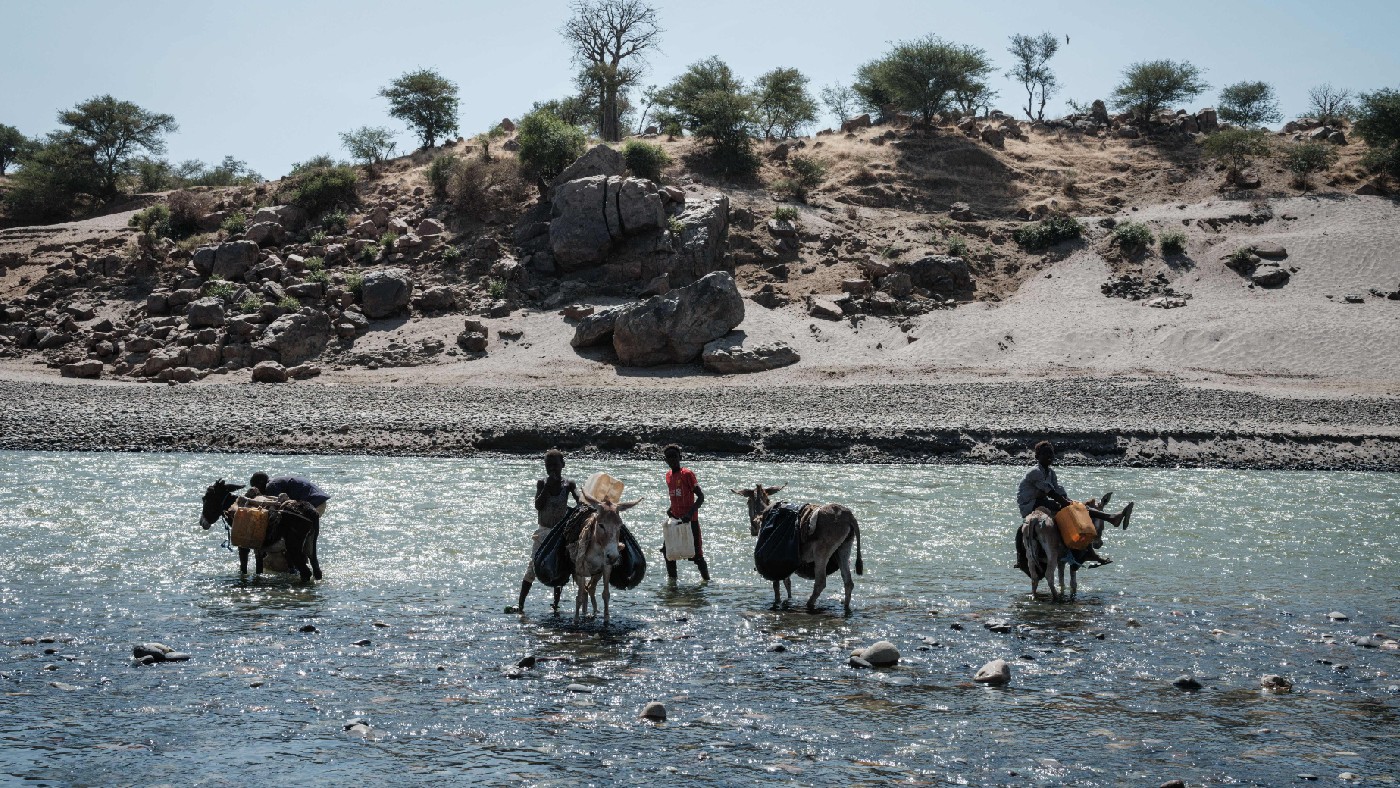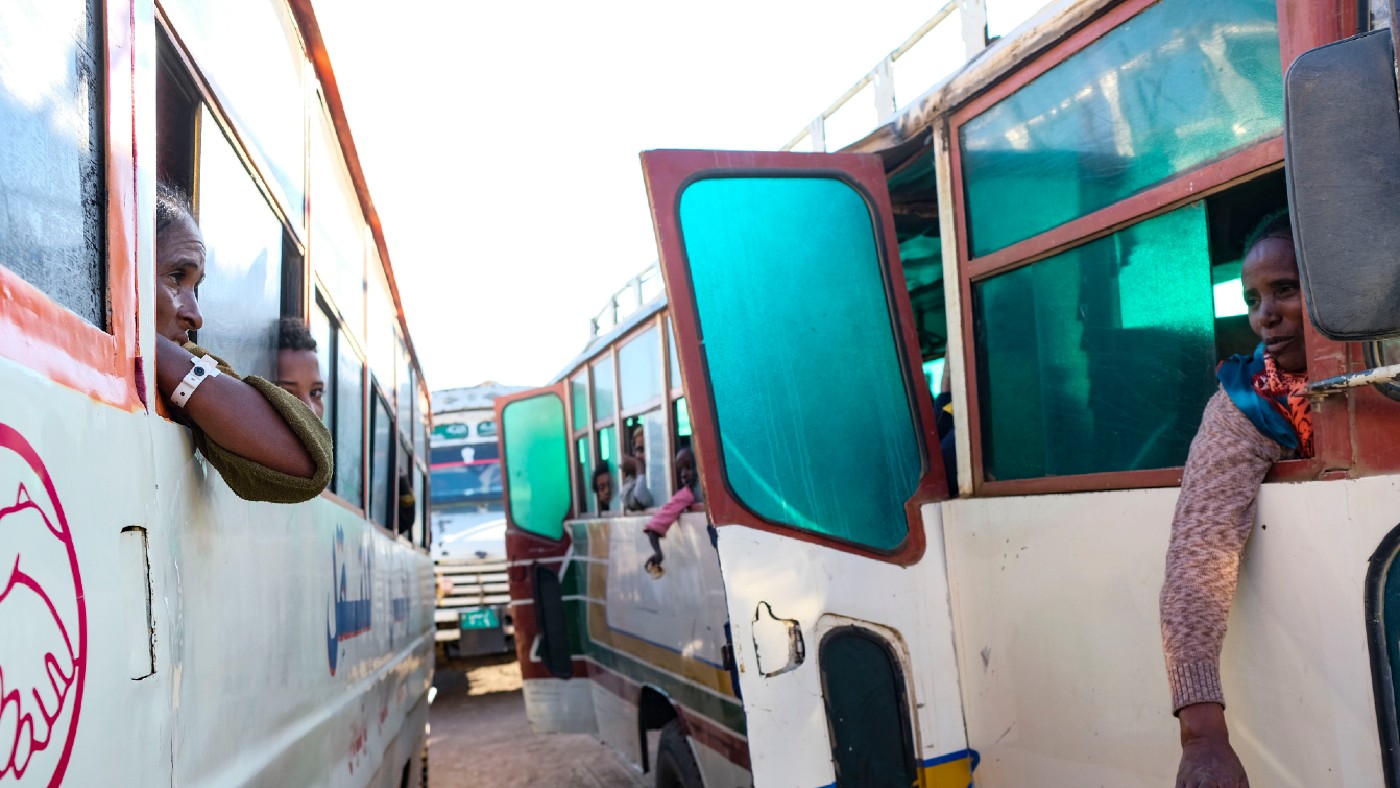Ethiopia’s civil war: from ‘African success story’ to brutal conflict
The conflict in Tigray has left thousands dead and some two million displaced, with refugees pouring into neighbouring Sudan

A free daily email with the biggest news stories of the day – and the best features from TheWeek.com
You are now subscribed
Your newsletter sign-up was successful
Until a few years ago, Ethiopia was considered “an African success story”, said Andrea Böhm in Die Zeit (Hamburg). Having freed itself from a “murderous socialist dictatorship” and a “vicious circle of droughts and famines” in the 1980s, the country was on the up: the economy was booming; its 20-year war with neighbouring Eritrea had come to an end. How different things look today.
For the past seven months, a bitter civil war has been raging between government forces and regional leaders from Tigray, in the country’s north. The conflict has left thousands dead and some two million displaced. Refugees have poured into neighbouring Sudan. Even more troublingly, an estimated four million people are now at risk of famine. Crops have been decimated by drought, fire and locusts; and government troops have reportedly blocked aid from reaching civilians, suggesting they’re ready to “use hunger as a weapon”. It’s a “horrific” situation–and one that’s all too familiar to those who endured Ethiopia’s past miseries.
Human rights groups have been sounding the alarm over this appalling conflict for months, said La Repubblica (Rome). They point to evidence of the “systematic” rape of thousands of women and girls in Tigray – which is home to seven million of Ethiopia’s 115 million people – and have warned that sexual violence is being used as a “weapon of war” by Ethiopian government soldiers and the Eritrean troops fighting alongside them. Yet the international community has “ignored” their warnings.
The Week
Escape your echo chamber. Get the facts behind the news, plus analysis from multiple perspectives.

Sign up for The Week's Free Newsletters
From our morning news briefing to a weekly Good News Newsletter, get the best of The Week delivered directly to your inbox.
From our morning news briefing to a weekly Good News Newsletter, get the best of The Week delivered directly to your inbox.

Now, that’s starting to change, said Medihane Ekubamichael in The Addis Standard (Addis Ababa). In late May, US president Joe Biden imposed visa restrictions on Ethiopian and Eritrean officials, and announced curbs on American economic and security assistance to the country, a key US ally in Africa. Warning of the risk of “widespread famine”, he called on Ethiopian and Eritrean forces to “allow immediate, unimpeded humanitarian access to the region”, and demanded an end to the “large-scale human rights abuses” happening there.
Ethiopia’s Nobel Peace Prize-winning PM, Abiy Ahmed, likes to present this conflict as a “law enforcement operation”, said Alex de Waal on Al Jazeera (Doha). He has railed against “foreign meddling” while seeking to deflect blame to the Tigray People’s Liberation Front (TPLF), which governs the region and has led the fighting against government forces. Yet the atrocities committed by his troops appear to be galvanising his opponents, said Africanews.com (Lyon). Support for the TPLF, which the government has labelled a terrorist organisation, is growing; and fighting has spread to the region’s “rugged highlands”. With neither side showing any sign of giving in, the chances of this brutal conflict ending soon look tragically slim.
A free daily email with the biggest news stories of the day – and the best features from TheWeek.com
-
 Local elections 2026: where are they and who is expected to win?
Local elections 2026: where are they and who is expected to win?The Explainer Labour is braced for heavy losses and U-turn on postponing some council elections hasn’t helped the party’s prospects
-
 6 of the world’s most accessible destinations
6 of the world’s most accessible destinationsThe Week Recommends Experience all of Berlin, Singapore and Sydney
-
 How the FCC’s ‘equal time’ rule works
How the FCC’s ‘equal time’ rule worksIn the Spotlight The law is at the heart of the Colbert-CBS conflict
-
 Epstein files topple law CEO, roil UK government
Epstein files topple law CEO, roil UK governmentSpeed Read Peter Mandelson, Britain’s former ambassador to the US, is caught up in the scandal
-
 Iran and US prepare to meet after skirmishes
Iran and US prepare to meet after skirmishesSpeed Read The incident comes amid heightened tensions in the Middle East
-
 Israel retrieves final hostage’s body from Gaza
Israel retrieves final hostage’s body from GazaSpeed Read The 24-year-old police officer was killed during the initial Hamas attack
-
 China’s Xi targets top general in growing purge
China’s Xi targets top general in growing purgeSpeed Read Zhang Youxia is being investigated over ‘grave violations’ of the law
-
 Panama and Canada are negotiating over a crucial copper mine
Panama and Canada are negotiating over a crucial copper mineIn the Spotlight Panama is set to make a final decision on the mine this summer
-
 Why Greenland’s natural resources are nearly impossible to mine
Why Greenland’s natural resources are nearly impossible to mineThe Explainer The country’s natural landscape makes the task extremely difficult
-
 Iran cuts internet as protests escalate
Iran cuts internet as protests escalateSpeed Reada Government buildings across the country have been set on fire
-
 US nabs ‘shadow’ tanker claimed by Russia
US nabs ‘shadow’ tanker claimed by RussiaSpeed Read The ship was one of two vessels seized by the US military